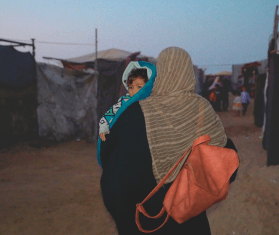Dear Friends,
There are people for whom living through a war is unimaginable. There are also people who have lived through so much conflict that anything else, over time, becomes equally unfathomable.
With tragic consistency, conflict has been a part of, or perhaps defined, life in the eastern parts of the Democratic Republic of Congo, or DRC, for a generation. The stories emanating from the region—and particularly North Kivu and South Kivu provinces—flash through the headlines every now and then, but it’s curious to see how little coverage is granted to people who have been enduring so much for so long. Conflict and its aftermath have killed millions in DRC. A rotating cast of militias battle each other and the national army, driving hundreds of thousands of people into the bush again and again. Children don’t get vaccinated and can’t get care for treatable diseases that prove fatal if unattended. Women are raped in staggering numbers. And hope dissipates with every new episode of violence and cruelty.
In this issue of Alert, we re-visit our work in eastern DRC, portraying the events of the past six months and their consequences by highlighting excerpts of reports we’ve issued earlier, photographs of people and our work in the area, and interviews with people leading our projects.
The needs are clearly immense, especially given the frequent outbreaks of disease in the region, and we are doing what we can to bring medical care to those who require it.
We also want to look at some other places and policies that could use more attention. One is the Trans-Pacific Partnership, a multi-country trade agreement being negotiated now by the US with 11 other Pacific Rim countries. Some parties to the process are insisting on including highly restrictive intellectual property clauses that could drastically reduce access to the low-cost medicines MSF and many other international health organizations rely on. We explain the issues here and ask for your help in protecting access to medicines for those who need it most.
Additionally, we have reports from Bangladesh and a “manifesto” for people who are living with drug-resistant tuberculosis. Part of our mission involves shedding light on communities and places that are not getting the medical assistance they need; that’s what this issue of Alert is designed to do.
We’re grateful for your interest in these places and for your support of our work. Were it not for you, these people and their needs would remain out of sight.

Sincerely,
Sophie Delaunay
Executive Director, MSF-USA




